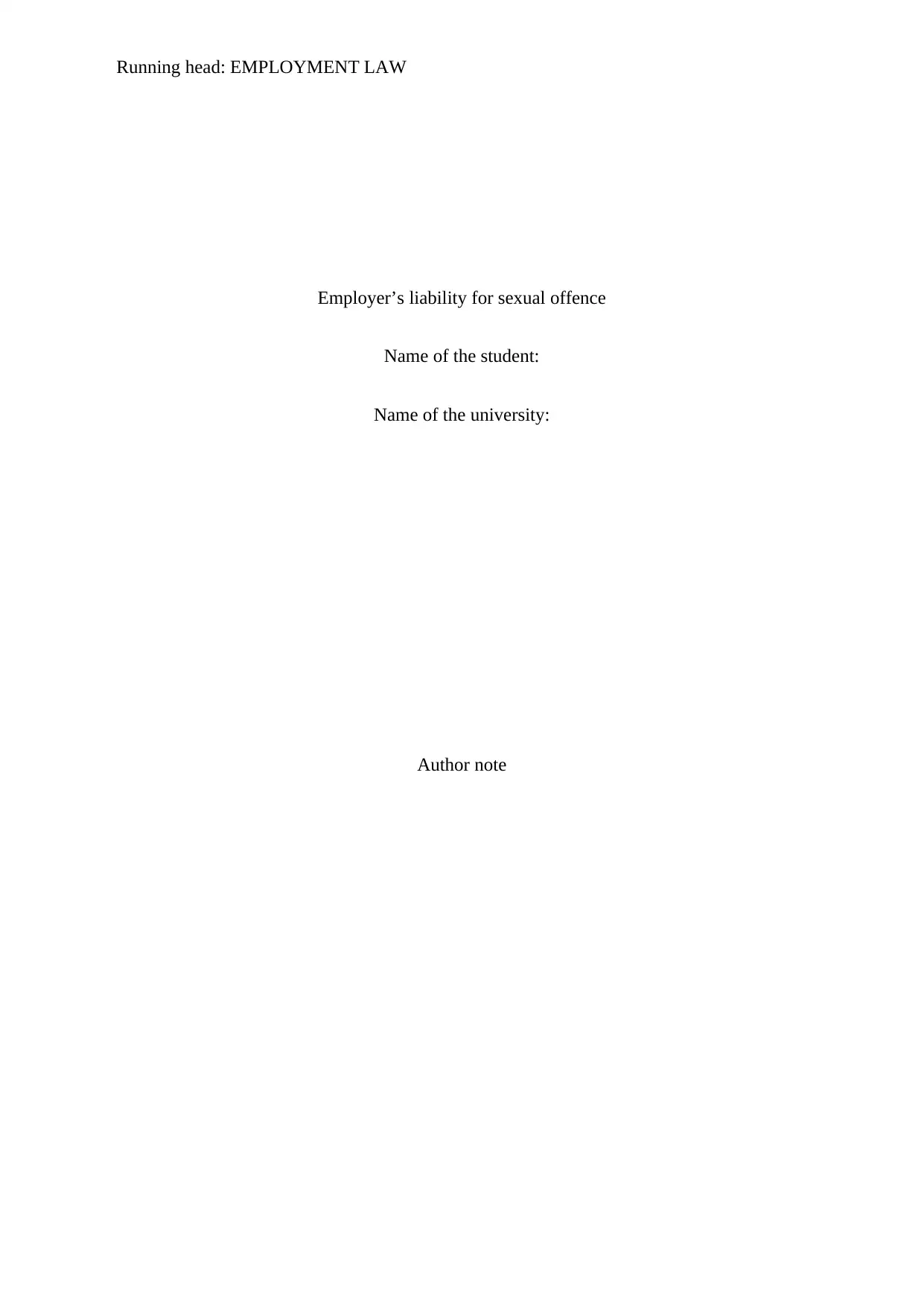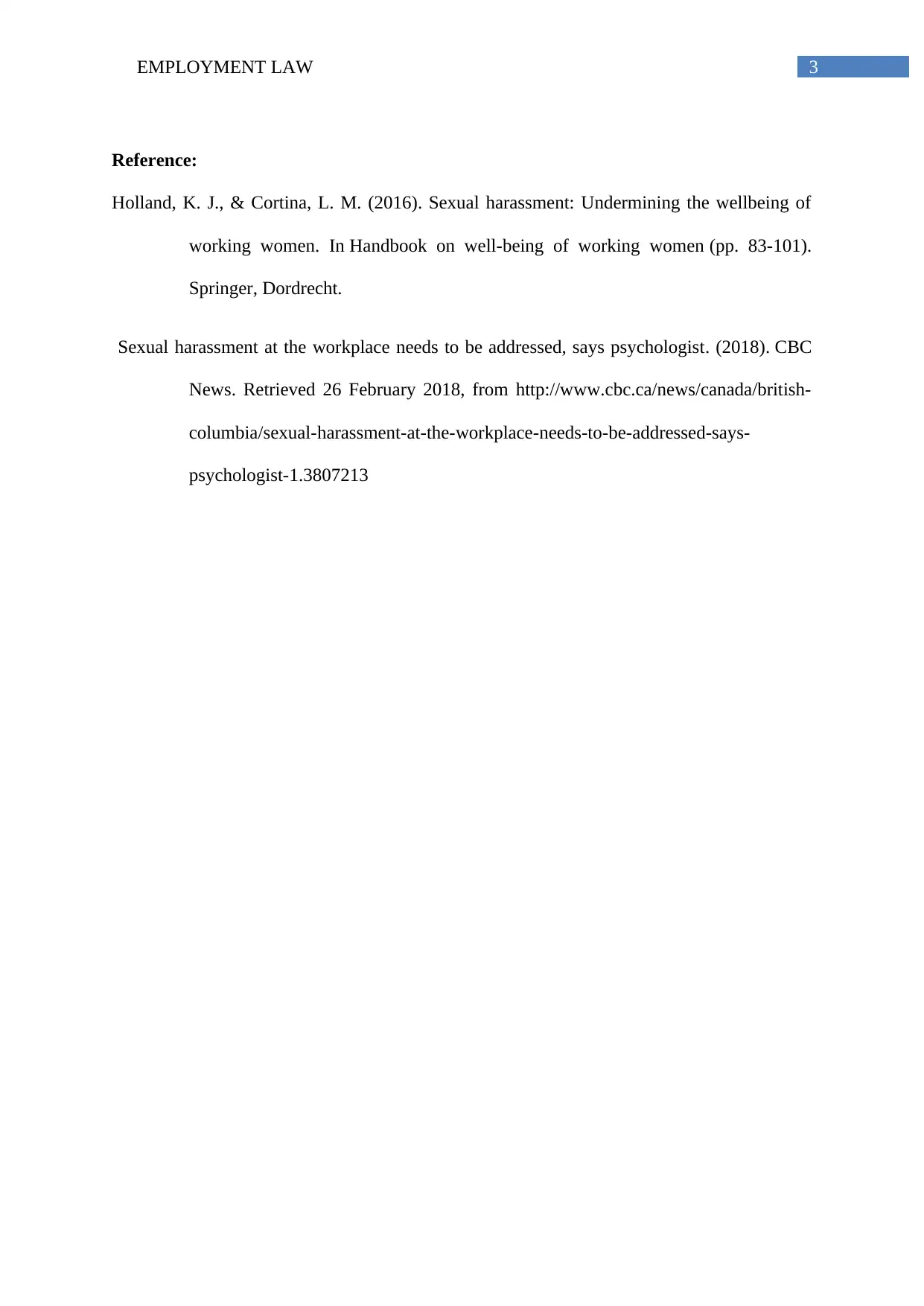Employer Liability for Sexual Harassment: Legal Analysis in Canada
VerifiedAdded on 2021/04/16
|4
|602
|68
Report
AI Summary
This report delves into the critical issue of employer liability for sexual harassment in the workplace, focusing on the legal framework within Canada. It addresses the core question of whether employers should be held accountable for the actions of their employees, even when those actions occur outside the scope of employment. The report examines the concept of vicarious liability, as established in cases such as K.L.B. v British Columbia, and its extension to off-duty conduct, as seen in Cimpean v. Payton. It highlights the prohibition of sexual discrimination under the Canadian Human Rights Act and the arguments surrounding employer responsibilities. The report also presents opposing viewpoints on the extent of employer liability, referencing cases such as Jacobi v. Griffiths and the Workmen Compensation Act. The author's opinion advocates for employer liability in all cases of sexual harassment, emphasizing the need for preventive measures to maintain workplace integrity, as supported by research from K.J. Holland. The report concludes by reinforcing the importance of employer's role in controlling employee behavior and ensuring a safe workplace environment, irrespective of where the action takes place.
1 out of 4











![[object Object]](/_next/static/media/star-bottom.7253800d.svg)